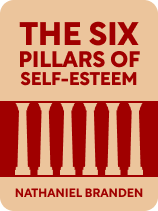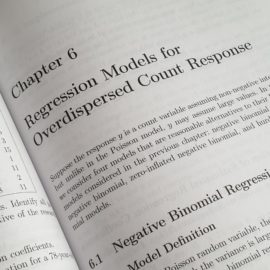

This article is an excerpt from the Shortform book guide to "The Six Pillars of Self-Esteem" by Nathaniel Branden. Shortform has the world's best summaries and analyses of books you should be reading.
Like this article? Sign up for a free trial here .
What exactly is self-esteem? What are the two components of self-esteem?
According to psychotherapist and self-esteem expert Nathaniel Branden, self-esteem is the tendency to believe that you’re capable of handling the fundamental necessities of life and that you deserve happiness. Branden calls this confidence in your own capability “self-efficacy” and your belief that you deserve happiness “self-respect.” Both are essential ingredients of self-esteem: You cannot have healthy self-esteem if you lack either.
Keep reading to learn about the two essential components of self-esteem, how your choices affect your self-esteem, and why self-esteem matters.
What Is Self-Esteem?
According to Nathaniel Branden, self-esteem involves capability and worthiness. He discusses these two elements in his book The Six Pillars of Self-Esteem.
The first element, self-efficacy or capability, is when you trust your own mind and judgment—so you feel like you control your life. You’re confident that you’re generally capable: You believe that you can learn the skills you need to succeed, even if you lack those skills in a specific area. You’re also confident that you can handle the fundamental necessities of life, namely to earn a living, have healthy relationships, and recover when you face difficulties.
[Shortform note: Research suggests that being confident in your capability may be more important than how capable you actually are, at least when it comes to how others perceive you. In The Confidence Code, Katty Kay and Claire Shipman note that people who think they’re capable (even if they’re objectively not) exude nonverbal cues that make them seem confident and inspire respect from others.]The second element, self-respect or worthiness, entails believing you deserve happiness because you are generally good and inherently valuable. You believe that you’re worth making happy and that you deserve to enjoy the fruits of your labor. As such, you treat yourself well and expect similar respect from others. (Shortform note: In The Gifts of Imperfection, researcher Brené Brown also emphasizes the importance of worthiness, or believing that you are good enough as you are and deserve to be loved. One key to feeling worthy is to abandon the idea that you need to fit societal expectations: You are worthy as you are.)
Crucially, Branden contends, your self-esteem both drives and depends on your behavior in a never-ending cycle: Your actions align with your expectations of yourself, which are reinforced by the consequences of those actions. (Shortform note: In Awaken the Giant Within, life coach Tony Robbins contends that your identity works similarly: Your identity is a set of beliefs about yourself, and since you strive to be consistent with your beliefs, you act in ways that reinforce your existing identity. However, Robbins attributes this striving for consistency to external societal pressure: Society says changing your beliefs is wishy-washy, so you avoid it.)
Since you have total control over your behavior, your choices inevitably affect your self-esteem: You can’t avoid feeling some way about how you choose to behave, and those feelings affect your opinion of yourself. As such, self-esteem can’t be divorced from your behavior; it’s trust in your own capability and worthiness because you act in ways that support these ideas.
That said, self-esteem depends on the pattern of choices you tend to make—not a single choice. As such, self-esteem isn’t something you achieve once; you work on it throughout your life as it fluctuates.
[Shortform note: One study found that middle-aged people tend to have high self-esteem that gradually declines after they reach retirement age (around 60). Researchers posit that your self-esteem may drop as you age because of the change to your life roles—for example, you may no longer feel needed once your kids leave the nest. Branden might argue that a change in your life role necessarily encompasses a change in your behavior—and it’s this change in your behavior that reduces your self-esteem.]Why Self-Esteem Matters
We’ve now learned what self-esteem is—but why does it matter? Branden shares several reasons.
First, Branden argues, self-esteem affects you no matter what. You can ignore your opinion of yourself, but you cannot refrain from having one.
(Shortform note: It’s possible that the lower your self-esteem, the harder it is to ignore your opinion of yourself. In The Happiness Hypothesis, psychologist Jonathan Haidt explains that humans have a negativity bias that wires us to dislike and fear bad things more than we like good things. This may lead us to pay greater attention to negative than to positive thoughts.)
Second, Branden argues, self-esteem promotes your well-being, which depends on your ability to think of and select the most appropriate behavior. You’re capable of knowing the right thing to do and choosing not to do it—in other words, you have the free will to think and act in self-destructive ways—but high self-esteem leads you to bypass such self-destructive options in favor of choices that support your capability and worthiness.
(Shortform note: In reality, most of us don’t make the best choice available, regardless of our self-esteem levels. In Thinking, Fast and Slow, psychologist Daniel Kahneman explains that humans are subject to several cognitive biases that lead us to illogical choices—like the availability bias, our tendency to overweight and recall strong emotions over less emotional but more important issues.)
As a result, self-esteem creates self-fulfilling prophecies. For example, people with high self-esteem keep trying when they face challenges, which makes them more likely to succeed—which raises their self-esteem. But people with low self-esteem don’t try as hard, so they’re more likely to fail, which lowers their self-esteem.
(Shortform note: While studies have found that the higher your self-esteem, the greater you keep trying after you fail, most studies have failed to find that self-esteem causes success—only that the two are correlated.)
Third, Branden asserts that self-esteem protects us from the worst life has to offer—he calls it the “immune system of consciousness.” When you have high self-esteem, you’re able to deal with and quickly recover from life’s inevitable challenges. With low self-esteem, you lack this ability, which inhibits your success. Of course, you can technically survive without self-esteem, and self-esteem doesn’t guarantee a fulfilled life, but without it, you definitely won’t have the most fulfilling life possible.
(Shortform note: In fact, one study of homeless youth found that having higher self-esteem buffered against some of the damaging effects of living on the streets, like loneliness and suicidal thoughts.)
Finally, Branden argues that self-esteem is more important than ever because you need it to survive the modern world, which requires you to make more choices than ever before: Not only do you have total freedom over your beliefs, jobs, and spouses, but modern knowledge worker jobs also require you to take initiative and make choices in a way that factory jobs didn’t. Branden contends that the more choices you need to make, the more you need self-esteem—you must trust your own judgment, decide what matters, and act accordingly. Without self-esteem, you’ll grow afraid of these choices and escape to places that don’t require choice but are dangerous in other ways—like a cult.
| Dealing With Decision Overload Even the most mentally robust people occasionally struggle with the amount of choices they must make every day: Research shows that the decisions you make throughout the day may drain your mental energy, making it more likely you’ll give into unhealthy impulses as the day goes on. Psychologists also contend that some mental health conditions that correlate with low self-esteem—like depression—may exacerbate this energy drain. However, they don’t recommend improving your self-esteem to make better choices. Rather, they suggest developing routines: By reducing the number of small decisions you make each day, you conserve your mental energy for big decisions that matter. |

———End of Preview———
Like what you just read? Read the rest of the world's best book summary and analysis of Nathaniel Branden's "The Six Pillars of Self-Esteem" at Shortform .
Here's what you'll find in our full The Six Pillars of Self-Esteem summary :
- Exactly how to behave to improve your self-esteem
- Why you need to take responsibility for your life and actions
- Why so many self-esteem techniques don't work






